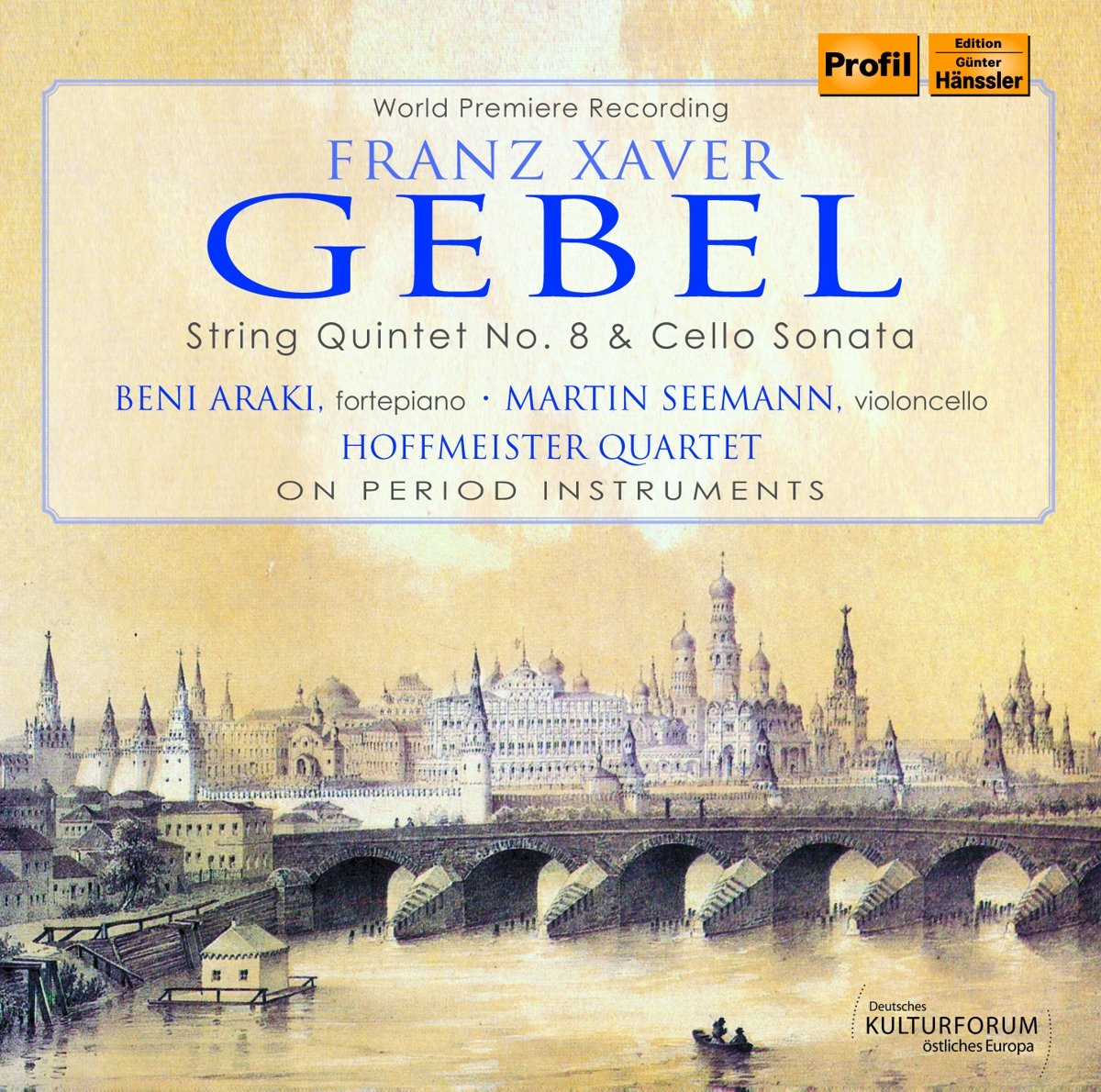Luigi Boccherini (Lucca, 1743 - Madrid, 1805)
String Quartets
Performer : Ensemble Trifolium
Release : 2017
Label : Lindoro
BUY IT HERE
Ensemble Trifolium hailed from Spain recorded four Quartets of Luigi Boccherini in this recent CD. They are doing four popular works from Boccherini in Gm G205, in G "La Tirana" G223, in Gm G194 and in Cm G159. You can hear it samples from this widget :
The CD notes translation :
The
present recording allows to overthrow the myth of Luigi Boccherini
(Lucca, 1743 - Madrid, 1805) as author of works of light tone, gallant
and even superficial and brings us to a deeper facet of the composer,
which runs parallel to the aesthetic- of the Central European Sturm und Drang.
Luigi Boccherini is an essential but controversial figure in the history of music in Spain. On
the one hand, his birth in Lucca (Italy) marginalized him from the
discourses elaborated by Spanish musicology with a nationalist tinge of
the late nineteenth and twentieth centuries, despite the fact that most
of his life and career are under the protection of Spanish institutions. In
addition, the supposed Italian invasion that "contaminated" Spanish
music throughout the eighteenth century also made it an uncomfortable
figure to tackle. On
the other hand, traditional historiography has considered Joseph Haydn
(1732-1809) as the "inventor" of two instrumental genres of great
importance in all later European music: the symphony and the string
quartet. This
supposed invention, which in reality consists in the adoption of a
local model (the Viennese) as a universal (European) model of
composition, helped to establish a German-centric canon that considered
all other compositional traditions, among which the Italian-Spanish Boccherini, as less developed links. Popularly,
the knowledge of Boccherini's music has been reduced to the celebrated
minuet of his string quintet in Mi Mayor (G. 275) and his quintet titled
La Musica Notturna delle strade di Madrid (G. 324). These pieces have portrayed the composer as a gallant and superficial author. Fortunately,
numerous musicologists have worked on several facets of the life and
work of Boccherini, offering a renewed image of the musician. This historiographical revision, along with the elaboration of the
critical edition of his works, evidences the high quality and depth of
his music and contradicts the idea of the supposed isolation that
Boccherini suffered in Spain.
Boccherini
composed string quartets over forty years: his first opus (opus 2) was
dated in 1761, while the last completed (opus 58) is from the year 1799.
The four quartets chosen for this work present different chronologies. The
earliest is dated in 1761, when Boccherini traveled to Vienna and to
various Italian cities where he earned his living as an interpreter in
orchestras or playing his own music. The
two intermediate quartets were composed between 1778 and 1780, during
his stay in Arenas de San Pedro (Avila) under the patronage of the
infant Don Luis de Borbón (1727-1785). The
later quartet is of the year 1792. After the death of Don Luis,
Boccherini returned to Madrid, obtaining of Carlos III an annual pension
for having been in the service of the infant. He
also obtained the favor of other aristocratic patrons: he was appointed
chamber composer of Prince Frederick William of Prussia, a position he
held between 1786 and 1797, and worked as conductor and composer of the
orchestra of the Duchess of Osuna and Benavente, Maria Josefa Alonso Pimentel (1750-1834), between March 1786 and December 1787.
BUY IT HERE
String Quartet in G minor Op. 32 no 5 (G. 205)
1 Allegro comodo 4’45’’
2 Andantino 3’58’’
3 Menuetto con moto 4’48’’
4 Allegro giusto 4’24’’
String Quartet in G Major "La Tirana" Op. 44 no 4 (G. 223)
5 Presto 5’02’’
6 Tempo di minueto 4’49’’
String Quartet in G minor Op. 24 no 6 (G. 194)
7 Allegro assai 5’29’’
8 Adagio 6’59’’
9 Menuetto 3’56’’
String Quartet in C minor Op. 2 no 1 (G. 159)
10 Allegro comodo 6’18’’
11 Largo 7’29’’
12 Allegro 5’55’’
Total time: 63’58”
Ensemble TRIFOLIUM
Carlos Gallifa, violín
Sergio Suárez, violín
Juan Mesana, viola
Javier Aguirre, violoncello
For the Record, Op. 281: Anna Im
8 hours ago



